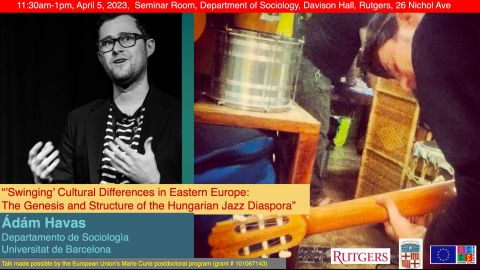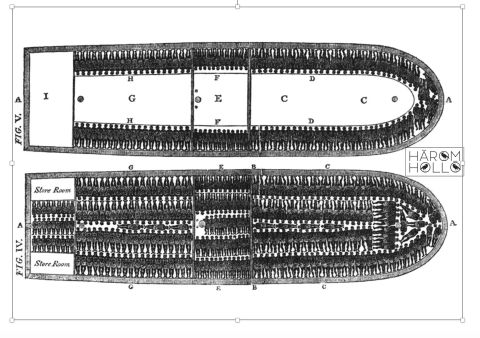Guest lecture at the New School's Brown Bag seminar series
Based on material from Dr Havas’ monograph, The Genesis and Structure of the Hungarian
Jazz Diaspora, (Routledge, 2022) the talk explores one hundred years of jazz in Hungary
from three major aspects:
1. the subversive role of jazz in the redefinition of racialized concepts of “national
culture”,
2. Hungary’s geocultural “swinging” between “East” and “West” and
3. the emergence of a folk music inspired national free jazz movement.
Conflicting definitions of jazz—“the sound of Western modernity”—have resulted in a
symbolic rivalry in Hungary between US-centric mainstream jazz on the one hand and a free
jazz aesthetics following the folklore-to-contemporary music tradition of Béla Bartók.
Notions such as “traditionalism” and “modernism” have been linked to class- and “race”-
based cultural distinctions, and they offer critical insights into the social logic of Hungary’s
geocultural positioning in the “twilight zone” between “East” and “West”. A shift from
“coffeehouse music” to bebop became a significant marker in the artistic strategies of Romani
musicians, so much so that jazz continues to function as means to express cultural difference.
Drawing on Bourdieu’s cultural sociology, popular music studies and postcolonial
scholarship, Dr Havas highlights the manifold, two-directional connections of this jazz scene
to global networks of cultural production.
Keywords: Jazz diaspora, globalization, cultural difference, geopolitics of jazz, Eastern
Europe
Adam Havas is a Marie Curie postdoctoral fellow at the University of Barcelona, Department
of Sociology. He is a member of the editorial board at Jazz Research Journal and managing
editor of the leading Hungarian social science journal Replika. He has recently co-edited, with
Bruce Johnson and David Horn the Routledge Companion to Diasporic Jazz Studies. His
book, The Genesis and Structure of the Hungarian Jazz Diaspora (Routledge) was published
in 2022.




